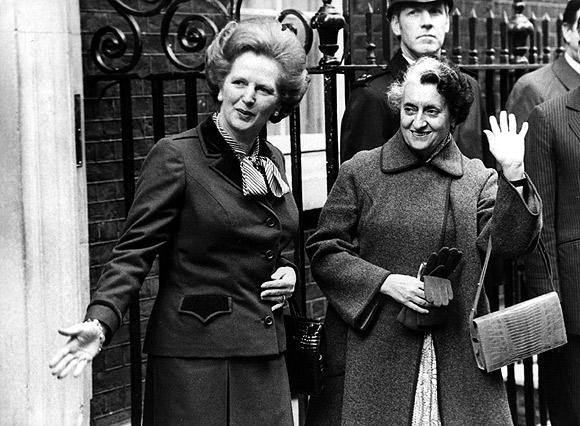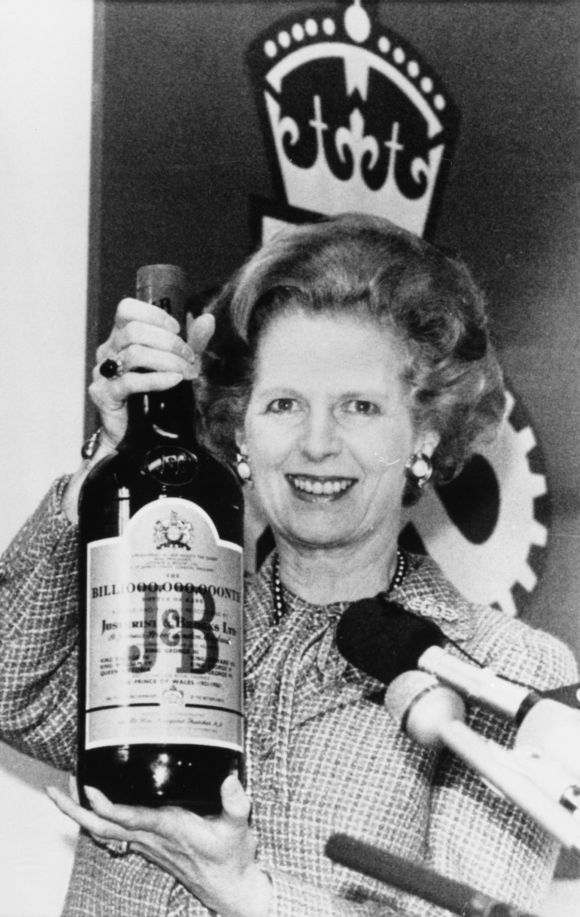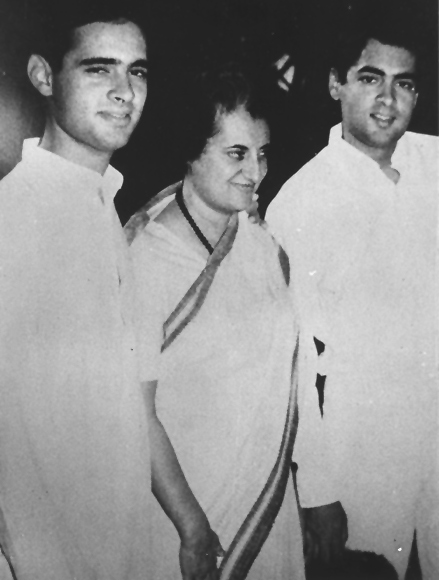
Equally admired and loathed, both Indira Gandhi and Margaret Thatcher have been so often memorialised in biography, novels and film that it's difficult to separate fact from fiction, says Sunil Sethi
Indira Gandhi's Emergency was at its paranoid peak in 1976 when Margaret Thatcher, leader of the British Opposition, arrived in Delhi. It was an inauspicious moment; her press conference drew a moderate turnout. The late Prabha Dutt of Hindustan Times, in her feisty way, lobbed a question about the suspension of civil liberties in India.
Britain's "Iron Lady" was prepared: she wasn't getting into the matter. Smoothly evasive, she said it was not her business to tell leaders how to run their countries -- or words to that effect. Later she recanted, saying that Mrs Gandhi "had taken a wrong turning and was to discover the fact at her party's devastating election defeat in 1977," and that they had "struck up a close rapport, for we both felt the loneliness of high office and it was good to be able to talk to someone who understood".
Before the world expanded its roster of women heads of government to include the Philippines, Norway, Australia, New Zealand and others (there are, in fact, 16 incumbents at present), there were only two iron ladies who dominated the stage.
Yet, in their politics, background, style and substance, they couldn't have been more different.
Mrs Gandhi suffered the indignities of a lonely childhood, bad marriage and a younger son who gave her grief. Icy silences and enigmatic stares were her chosen weapons of self-defence.
Margaret Thatcher had a solid, hard-working middle-class upbringing and a devoted, self-effacing husband maliciously parodied in Private Eye's "Dear Bill" diaries as "a golf-loving, gin-swilling buffoon with shady friends".
Click on NEXT for more...

Her son, Mark, was foolish, not dangerous. Words flowed from her in rapier thrusts and sledgehammer blows.
Both leaders are accused of running parties and cabinets as bastions of traditional patriarchy; they did little for women in the workplace or in Parliament -- but, by symbolically breaking the glass ceiling for the top jobs in Asia and Europe, they mined into the women's vote.
Many diehard female Labour Party supporters voted for Mrs Thatcher in her first election victory in 1979.
The previous summer I had trailed Mrs Gandhi across Uttar Pradesh as she staged her comeback by campaigning for the crucial Azamgarh by-election. (She shrewdly chose Mohsina Kidwai as her candidate.) In that provincial town, women in the red-light area who had never before voted proudly raised their palms to endorse the new Congress-I's symbol of the hand. In Varanasi, Kamlapati Tripathi's resourceful bahuji organised a curious spectacle: a sort of purdah box encased the leader, moving down a popular ghat for holy immersion. Thousands of women pilgrims hailed her as deity as, sight unseen, she apparently sanctified herself.
Ploys, Leftist postures and populist slogans rather than enduring policies strategically marked her two reigns.
Mrs Gandhi's tenure as prime minister was longer -- over 14 years -- compared to Mrs Thatcher's less than 11. She was the chief architect of India's lamentable "Hindu rate of growth" and chief engineer of the Soviet alliance during the Cold War.
It took decades to overcome the first; the second languishes in the waste bin of history.
Click on NEXT for more...

Mrs Thatcher swerved right from the start. She abhorred socialism, championed free-market economics, trampled on trade unions and embraced the United States, especially her friend and ally Ronald Reagan. She left a legacy that forever altered the shape of British politics and society.
Equally admired and loathed, both leaders have been so often memorialised in biography, memoir, novels and film that it is difficult to separate fact from fiction. Gulzar's vaguely allusive take in Aandhi (1975), with Suchitra Sen improbably cast as a Mrs Gandhi-type politician, is as unconvincing as Phyllida Lloyd's The Iron Lady (2011) with Meryl Streep's ventriloquist act embedded in a dementia-induced haze.
There was something else that trained the world's spotlight on the Iron Ladies. It was war.
Mrs Gandhi's decisive armed intervention to liberate Bangladesh in 1971 and Mrs Thatcher's expeditionary triumph in the Falklands in 1982 won them the high moral ground.
Future historians of the 20th century may well ask: were two Iron Ladies too many?
Click on NEXT for more...
...